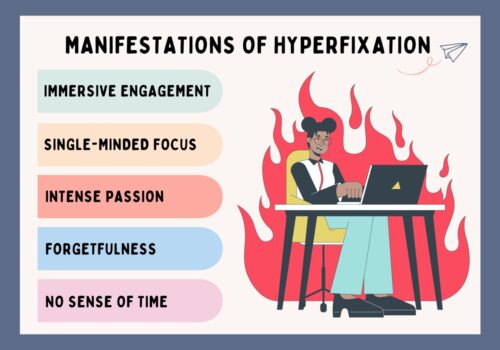An individual’s mental health is a topic that requires immediate attention, yet a whole lot of people ignore it. Mental health is a vital component of the physical well-being of an individual. When talking about our country alone, India is one of the countries facing the highest number of mental illnesses globally. This is shocking as well as sad. It isn’t the rising number that is a threat, but the actual number of cases hidden under the carpet merely for shame and what people will say.
According to the most recent report submitted by the National Mental Survey of India, 2015-16, Indians are way too backward in talking about their mental health problems. The overall prevalence of mental health disorders in men is 13.9%, which is almost double as compared to females, who are at 7.5%. This is a huge gap and an area to be looked into seriously. Nearly one out of ten men experiences severe mental health issues, which they readily ignore just to satisfy the various societal pressures and the dilemma of how to face them if they get exposed out in the world.
Although the ratio of men falling prey to mental health disorders is far below women’s, the number of men who commit suicide due to these issues is very high. The following article highlights the rising mental health issues among men and why it is important to address them sooner and avoid being late.
What Are the Warning Signs of Mental Health Issues?
The signs and symptoms of mental health disorders are ubiquitous and undiscoverable most of the time. What is more important here is how frequently any individual experiences them. If a person is behaving in a different manner and the trend follows quite often, then perhaps he needs medical intervention. Here are some of the warning signs that can help in identifying any mental health issue:
- Any sudden behavioral change accompanied by sleeping or eating disorders.
- Continuous sad or irritating behavior
- Unwillingness to meet people, friends, or family members.
- Extreme mood fluctuations, especially in a negative sense,.
- Suicidal tendencies
- Sudden and persistent physical issues like headaches or stomach issues.
- Feeling lethargic and lazy.
- Unable to concentrate on work or studies.
- Not able to handle daily stress or emotions.
What Are the Stigmas Regarding Men’s Mental Health?
There are certain ways in which society puts pressure on men to behave differently. The age-old stereotypes of culture and tradition have blindfolded the minds of the people. Men have been conditioned to believe that they are weaker and lack masculinity if they express their thoughts and emotions. As this age-old tradition continues and men continue with it, they are more likely to face mental health issues than women. Various studies have revealed that men under severe societal and cultural pressures do not seek help if they face any mental health disorders. This, in turn, makes the problem worse, and the friends and family members have to face the outcome of these situations.
What Are the Mental Health Issues Surrounding Men?
Suicide
As mental health issues go unnoticed and people become increasingly ignorant, a dangerous outcome often unfolds. Suicide is often referred to as the silent killer because, most of the time, individuals don’t even realize they are slowly falling into this trap.
In America, a study on around 4000 men showed that men are more likely to commit suicide than women due to a lack of communication. As a result, they tend to deviate toward substance addiction, which in turn is itself a slow killer.
Depression
Being a dangerous factor behind mental health issues, depression is another high-risk mood disorder that can affect any person’s capacity to think, feel, and behave. Depression is again a total disaster, as it has a variety of symptoms ranging from feeling sad, angry, losing interest in day-to-day activities, anxiety, agitation, feeling tired, unworthy, etc., and much more. The range of symptoms of depression is so wide that quite often, this mental health issue remains undiagnosed, and due to societal norms, it often goes untreated.
Post Traumatic Stress Disorder( PTSD)
A mental health condition like PTSD is aggravated by trauma or stress, accompanied by flashbacks, severe anxiety issues, and even nightmares. In general, people who have to face traumatic events recover within a year or so with proper care, but if the side effects of the trauma last for a longer period of time, it indicates that the person has PTSD. The symptoms of PTSD range from unwanted feelings, memories, mood fluctuations, especially negative mood swings, and changes in physical and emotional reactions.
How to Help People With Mental Health Issues?
Here are some important steps to be taken to help all the people who are suffering from mental health issues:
- Take care of your loved ones’ well-being: Lend your back to your loved ones when they are in distress. Just listening to them can make them feel worthy of your love and care and can prevent any emotional outburst.
- Speak up for people: At times, we feel that we need to stand up for people because they are not in a position to do it for themselves. This is the time when they need support on which they can rely and feel comfortable. Be that support system.
- Start reacting to inappropriate remarks: The society, on the whole, functions as a unit, but this unit is made up of people and their mindsets. If by any means, you feel that there are certain behaviors or remarks that are not appropriate and can instill a great deal of negativity in the minds of the listeners, you can object to them. Always remember, standing firmly for the cause, automatically increases its worth.
- Work for the betterment of mindsets: There are multiple charitable organizations that work towards increasing awareness among people about mental health issues. If possible, doing will be better than saying. Try to get involved with some organizations to create awareness and educate people on these issues.
- Listening: The best thing we can do, to help people with mental health issues is to listen to them without making judgments. Listening to the smallest of their things can be of great help in overcoming their anxiety and health issues.
- Offer help by providing professional support: If you see your loved one facing these issues, it is indeed your responsibility to take matters into your hands. Take them to a consultant offering effective mental health treatment programs to prevent worse outcomes.
How to Handle Our Responses in Crisis Situations?
People facing a mental crisis may feel suicidal and sometimes lack the motivation to move forward in life. It becomes the added responsibility of their families to continuously encourage them. Talking is a great therapy for such people, but you need to make sure that it isn’t becoming distressing for you as well. Take the help of a counselor or therapist in getting help for depression and anxiety or any other mental health issue you are facing. A humanistic approach is required to solve these problems with ease.
Why is It Important to Break the Stigma Related to Men’s Mental Health Issues?
The stigma around men’s mental health is an increasing concern in our society. An ignorance of this provokes challenges in the social and personal lives of men and the various aspects associated with them. Unhealthy coping mechanisms in men might lead to harmful behaviors for themselves and their close ones. Because of this practice, men face the severity of mental health issues far more than women. As a result of this, often these issues go unnoticed, but as an individual, health is primarily important, and mental health should be of paramount importance. Society needs to accept the emotional sides of men and should not link them to masculinity or shame. The present world is far more open and accepting as compared to previous generations. All the more, social media has played a good role in uplifting the spirits of people when it comes to expressing their emotions. To continue with this, we need to train our men, our boys, to speak their hearts out, even when they are ashamed of doing so. At home, as a part of society, we need to condition our children to be more open and not fearful when expressing themselves. Also, as caregivers, we ought to be more open to accepting their emotions and feelings with ease. It is not hard to understand that there is no single, one-step solution to these problems. There are several components and activities that should be integrated into the existing systems. Activating the new plans and implementing them wisely is the only way out. Stigmas are hard to eradicate from the roots of society. The modern world has put a lot of pressure on men, which can be superseded only through the constant upgrading of people emotionally, spiritually, and mentally. Only then would society be able to thrive and flourish and provide a safe space to the forthcoming generations.
















